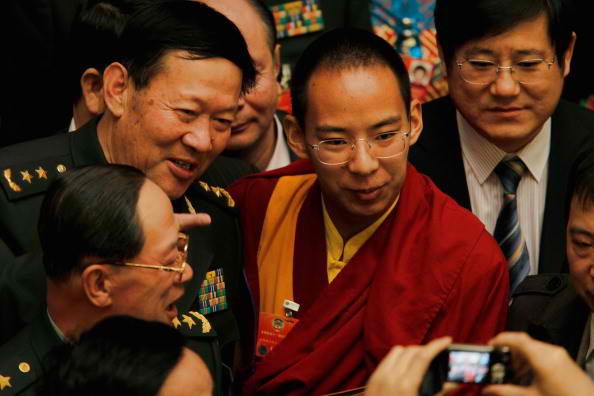Tibet's 11th Panchen Lama, considered as the second-highest figurehead in Tibetan Buddhism but largely seen as a Chinese government collaborator by several Tibetans, delivered a lunar new year message full of adulation for the Communist Party's religious policies.
Gyaltsen Norbu was appointed as the 11th Panchen Lama by China, as it sought to gain the support of many Tibetans. Tibet's highest spiritual leader, the Dalai Lama, is largely seen by the Communist Party as a figurehead of the autonomous province's secessionist movement.
China's Panchen Lama sent his Tibetan lunar new year message to the United Front Work Department, which supervises religious groups in the country. The Panchen Lama's new year message largely discussed the religious activities he helped carried out in the past year, The Star reported.
Describing the Communist Party's religious policies as beneficial to many Tibetans, the Panchen Lama's new year message spared no room for criticism, even to the extent where the Panchen Lama himself said that such efforts made him "very happy."
Criticized as a lackey by the Chinese government, the Panchen Lama has been groomed to rival the Dalai Lama in Tibet as a respectable religious figure. Such comes with the ultimate intent to secure Tibet from secessionist forces, considering that several Tibetans have historically rejected Chinese rule.
The Dalai Lama himself chose his own Panchen Lama, but the Chinese government forced its own choice by abducting the then-six-year-old, who no longer appeared in public since then. China continues to see its rule over Tibet as one that brought real progress to the autonomous province.
China also stressed that it holds great respect for Tibet's religion and culture, despite vehemently using religious means to assert its rule over the mountainous region. The current Panchen Lama's predecessor was imprisoned for a decade after he started criticizing the Chinese government in the 1960s.



























